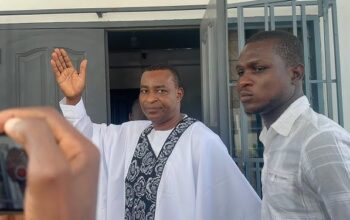Former President John Mahama has stated that Ghana imports nearly $400 million worth of chicken every year, describing this as a source of shame for the nation. He reiterated plans to support 54 individuals in producing four million birds, which would amount to 10,000 metric tons of chicken.
President Mahama emphasized his government’s dedication to advancing livestock development, aiming to boost cattle production and small ruminants such as goats and sheep, alongside improving access to high-quality breeds.
He made these remarks during the launch of the government’s Feed Ghana Programme in Techiman, Bono East Region. The programme is a major initiative aimed at improving agriculture across the country.
Mahama outlined that the livestock production aspect of the program would focus on agricultural enclaves and infrastructure. This includes implementing irrigation systems, improving road infrastructure, providing power supply, and building warehousing facilities to attract private investment.
The president added that the initiative would further support the production and processing of agricultural products. He also presented maize seeds, fertilizers, a Kia truck, and tractors to various institutions, including the Ghana Prisons Service and the National Service Authority, to assist with the programme’s implementation.
He urged unity and collective commitment to transforming Ghana’s agriculture sector as a key driver of national growth. He described the Feed Ghana Programme as a proactive initiative, not just a policy. While acknowledging challenges within the sector, he expressed optimism about the programme’s success and called on farmers, agribusinesses, financial institutions, and development partners to collaborate for its success.
The Feed Ghana Programme aims to increase food production, promote modern farming techniques, improve infrastructure, and establish agro-industrial zones throughout the country.
Key interventions include smart agriculture, with the establishment of farmers’ service centers nationwide. These centers will provide services like mechanization, quality inputs, financial support, market access, primary processing, and farmer training.
President Mahama also announced the creation of farm banks or land banks in irrigable zones to assist young agri-entrepreneurs and boost national food production.
Additionally, the programme’s second component, grains and legumes development, focuses on increasing the production of maize, rice, soya beans, and sorghum for consumption, agro-processing, and export.
The third component, the “Yeredua” vegetable development project, aims to reduce imports from neighboring countries by encouraging local vegetable cultivation.
The president stressed the importance of controlled environmental farming, such as greenhouse technologies, urban and peri-urban agriculture, and promoting backyard gardening in schools.
The fourth component focuses on institutional farming, empowering households and communities to grow vegetables like tomatoes, peppers, and garden eggs to enhance self-sufficiency. It will also support institutions like Senior High Schools in accessing land for crop production and livestock farming.
The fifth component involves revitalizing the poultry industry, under the “Nkoko Nketenkete” project.









